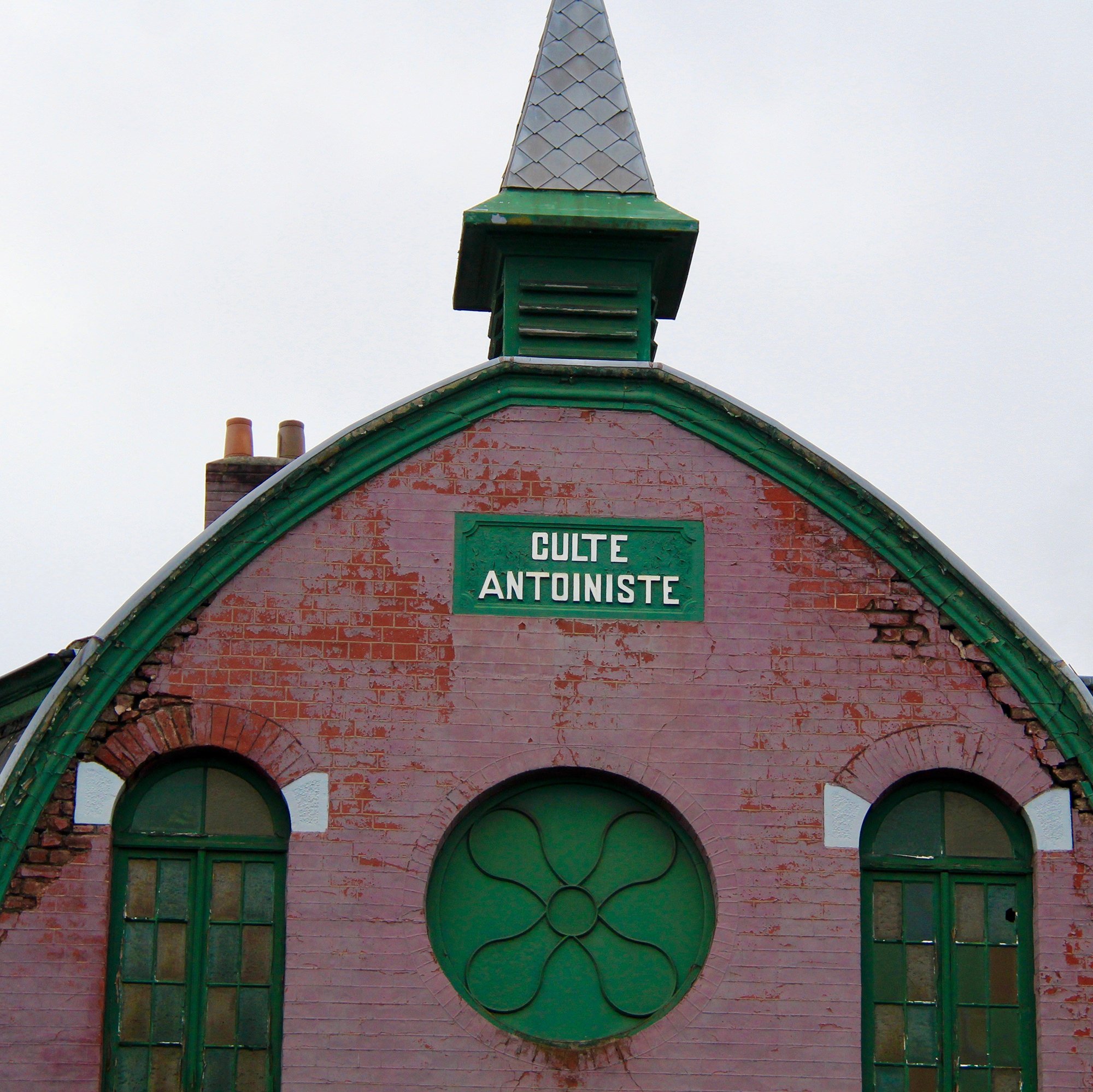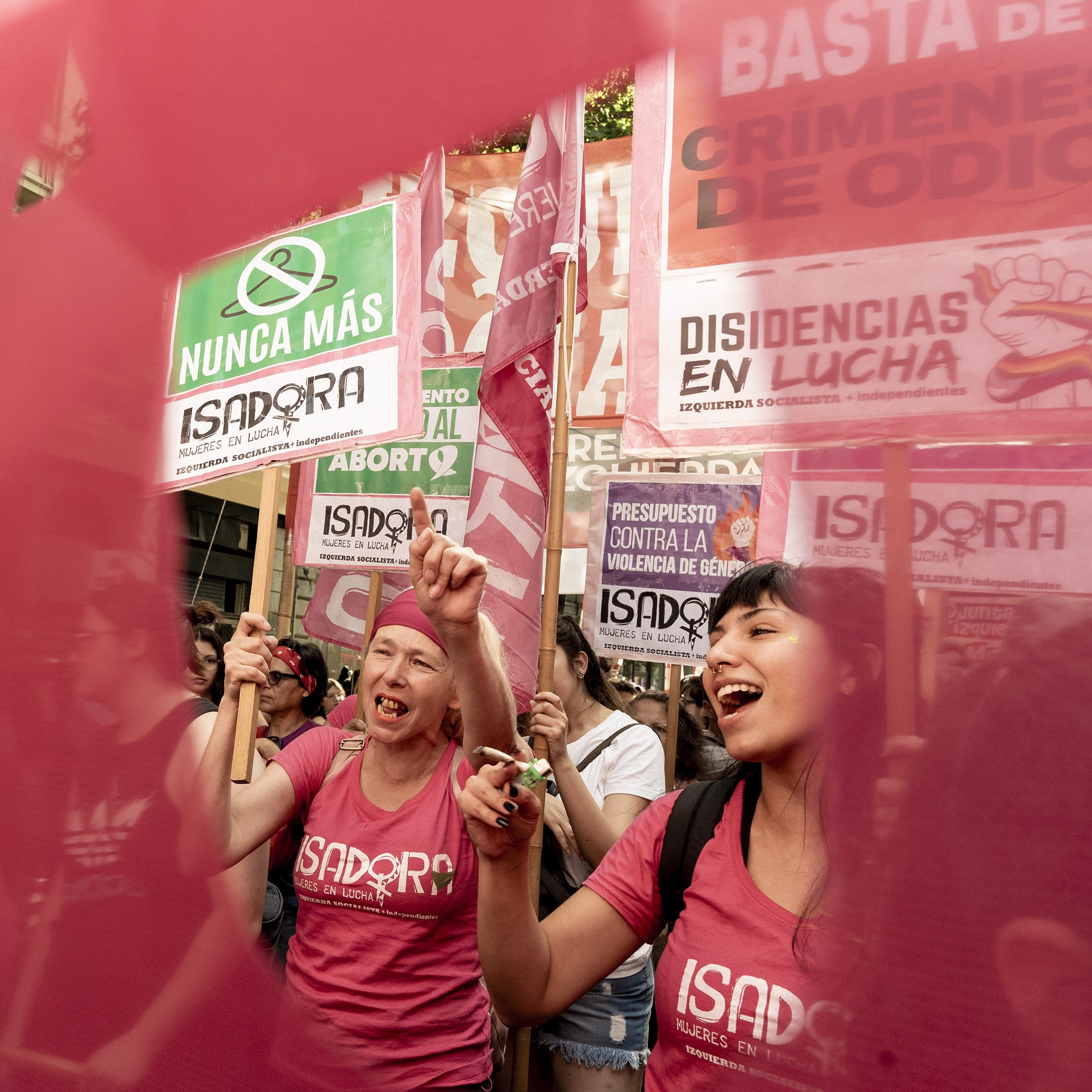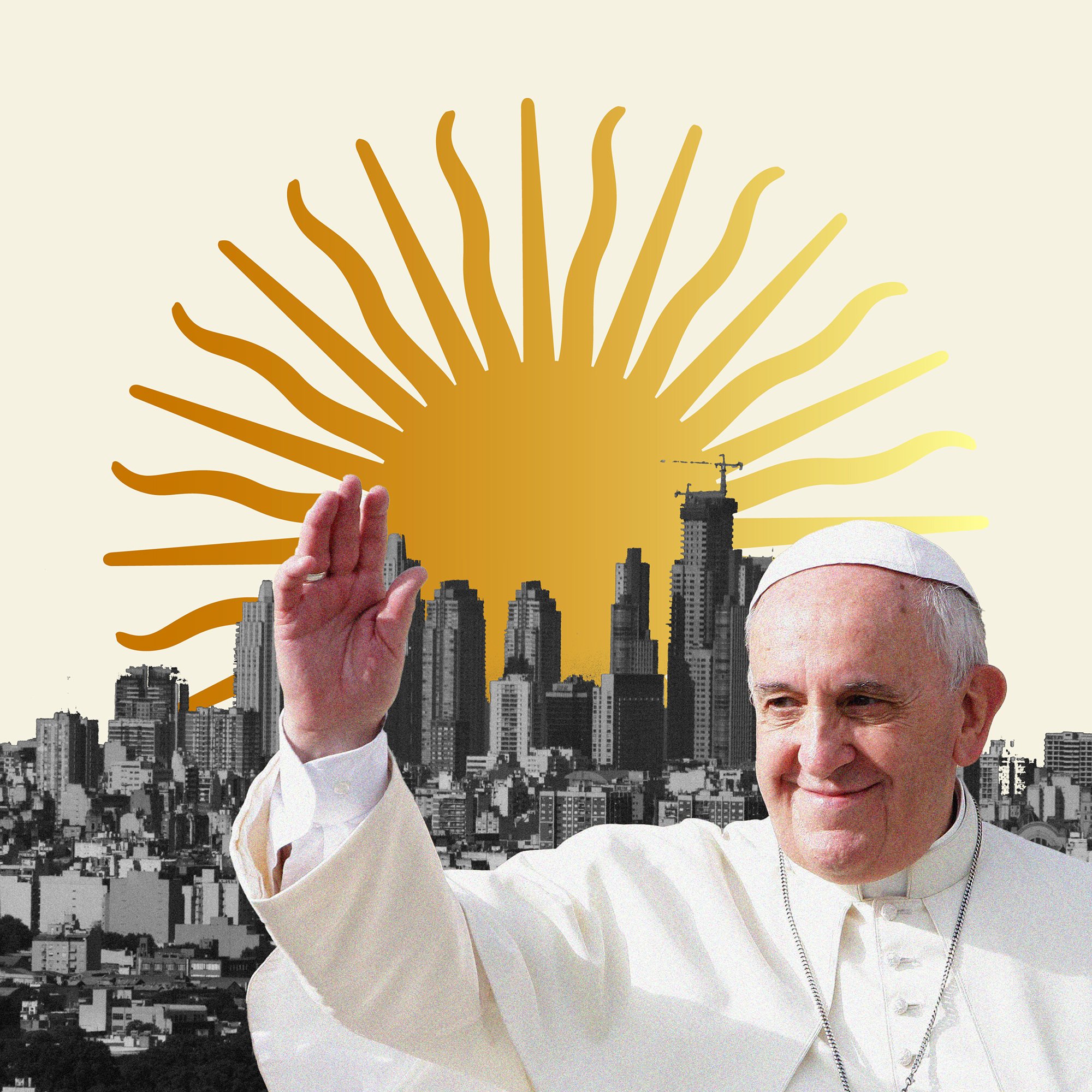The Church the Ghanaian State Built
How conservative Christian theology has shaped anti-LGBTQ laws in Accra.
FEBRUARY 23, 2023
In April 2022, Nana Akufo-Addo, the president of Ghana, traveled to London to meet with then-British Prime Minister Boris Johnson. But instead of flying straight to Heathrow, Akufo-Addo took a detour to North Carolina to see T.D. Jakes, an evangelical preacher based in Dallas, Texas. Jakes was holding his annual International Leadership Summit in Charlotte and had invited Akufo-Addo to deliver a keynote address. The two men met to discuss the president’s decision to build a Ghanaian national cathedral, a $450 million project he had been planning since he was elected in 2016. “Ghanaians are active Christians, not people who say they are Christians and do nothing about it,” Akufo-Addo said in a recorded interview with Jakes. Once completed, the cathedral will stand on land where historic residences for judges once stood. With a seating capacity of up to 15,000, the cathedral is designed to be used for national occasions such as presidential inaugurations and will feature chapels, a museum about the Bible and a restaurant.
The Ghanaian charismatic movement is composed of a collection of connected churches that emphasize the American televangelist Oral Roberts’s “seed-faith” gospel, also known as the prosperity gospel. This gospel teaches that believers receive material and financial blessings from God through the payment of tithes and offerings.
The Ghanaian charismatic movement has had a decades-long relationship with U.S. evangelical organizations, which in turn have played a significant role in shaping the perceptions of gender, sexuality and morality in Ghana. The charismatic movement emphasizes the importance of traditional norms regarding sexual purity and gender, often tying these values to economic prosperity. Its members have regularly issued statements warning the public against same-sex marriage.
Since 2007, U.S.-based right-wing Christian groups have spent more than $280 million fighting gay and abortion rights abroad. More than $50 million has gone toward courting African politicians and religious leaders and funding programs that oppose sexual and reproductive rights throughout the continent. Aside from lobbying politicians to pass anti-homosexuality laws, groups such as Heartbeat International have established “pregnancy crisis centers” in South Africa, Uganda and Nigeria to promote anti-abortion ideology.
Now these efforts may be bearing fruit: The Constitutional, Legal and Parliamentary Affairs Committee of Ghana’s Parliament is currently reviewing what has been described as the most homophobic bill in the world, the Promotion of Proper Human Sexual Rights and Ghanaian Family Values Bill. The bill seeks to criminalize, among other things, intersex and asexual individuals, public displays of affection between persons of the same gender, cross-dressing, the sale and ownership of sex toys, and even the promotion of LGBTQ “sympathy.” Queer individuals could spend five years in jail, while gay rights advocates could face up to 10 years. An eight-member bipartisan group of parliamentarians is sponsoring the bill, which was first introduced to the House in March 2021.
This bill comes at a time when the Ghanaian economy is in free fall. Citizens are struggling to make ends meet: Inflation is at 54%, a 22-year high, and the country’s currency is the worst-performing in the world. The government is currently awaiting a $3 billion loan from the International Monetary Fund to deal with the economic crisis. Despite this, the anti-gay bill has become the cornerstone of the country’s political life.
The anti-gay movement in Ghana has been brewing for over a decade. In 2013, Moses Foh-Amoaning, a lawyer then known primarily for his sports commentary, launched the National Coalition for Proper Human Sexual Rights and Family Values with one goal: to protect Ghanaian culture from homosexuality. The coalition includes religious leaders, politicians, health professionals, media practitioners, civil society organizations, imams and members of the National House of Chiefs, a body composed of traditional Ghanaian kings and chiefs and rulers.
Six years later, Foh-Amoaning, his political allies and various churches urged the government to suspend plans to introduce a comprehensive sex education curriculum in schools. The group argued that the curriculum served a covert Western agenda to spread homosexuality in Ghana. Foh-Amoaning and his allies also called for the closure of an LGBTQ community center in Accra that had opened in 2021. At the opening event for the center, diplomats from the European Union delegations and Australia mingled. Just weeks later, the landlord and the police closed the center. A few months later, a Ghanaian MP threatened Gregory Andrews, the Australian high commissioner to Ghana, for participating in the event. In December 2021, Andrews was reportedly recalled from his diplomatic role and left the country.
Over the last several years, it has become routine for Ghanaian politicians to state their position on homosexuality while running for office. At her vetting as minister of gender, children and social protection in 2021, Sarah Adwoa Safo refused to say whether her office would protect gay people in Ghana.
Some Akan ethnic groups, the largest in Ghana, refer to a woman who acts like a man through her dress, dance and mannerisms as ‘obaa barima,’ which translates as ‘woman man.’ The term is also used to refer to strong and courageous women.
Local and international human rights organizations say there has been a marked increase in attacks against gender and sexual minorities since the anti-homosexuality bill was laid before Parliament. This follows a general trend: A 2015 Human Rights Watch report found that “several men described being severely beaten by mobs of young men—often after being lured into compromising situations and blackmailed on social media.” In 2018, Philip Alston, the U.N. special rapporteur on extreme poverty and human rights, observed that queer people in Ghana suffered harassment in public, in the workplace and at home.
Just three years later, 21 queer activists were arrested during a training session on documenting human rights violations in Ho, a city four hours from Accra. They were accused of promoting the LGBTQ agenda, denied bail four times and jailed for three weeks under a rarely enforced colonial-era law that criminalizes “unnatural criminal knowledge.” Two more months passed before the court dropped the unlawful assembly charge against the group.
These events have transformed and endangered the lives of ordinary queer people in Ghana, a nation where fluid gender norms have been traditionally accepted. Some Akan ethnic groups, the largest in Ghana, refer to a woman who acts like a man through her dress, dance and mannerisms as “obaa barima,” which translates as “woman man.” The term is also used to refer to strong and courageous women.
One queer woman, whom I’ll call Mamaa, told me how she had seen reactions to her own queer identity change in just a few short years. Mamaa has masculine features; she is of medium height, lean and muscular. She grew up in a village where her strength was an asset. “People would come to my parents and ask their permission so I’d play soccer for the women’s soccer team,” she said. “Obaa barima wasn’t an offensive statement when I was growing up. They’d call me that, and it was with some admiration.”
In 2017, Mamaa attended the burial service of a friend’s mother in Somanya, a small town three hours away from Accra. At the funeral, she realized that the perception of queer identity had changed. Officially, the central message of the pastor’s sermon was that “those who die in Christ will go to heaven,” she recalled. But after the offertory, he returned to the microphone and began preaching about sexual sins. “These days, men want to be women, and women want to be men,” Mamaa remembered the pastor saying. “Women are sleeping with women, and men are sleeping with men. But a day is coming when we will all give an account of what we did on Earth, and we will pay.”
Today, more than 70% of Ghana’s 30.2 million population identify as Christians (of all denominations), up from 42% in 1960. Young people are more religious than older Ghanaians.
Anti-homosexuality campaigners have cited Western attempts to undermine Ghanaian culture and family values as one of the central reasons for criminalizing LGBTQ relationships. Rockson-Nelson Dafeamekpor, one of the eight sponsors of the bill, said in an interview that the MPs are only fulfilling a constitutional provision that requires them to uphold values rooted in Ghana’s culture. “For a man to decide to sleep with a man, which cannot lead to procreation, which if allowed will lead to the extinction of Ghanaian society — our customs frown upon it.”
But the bill itself may very well stem from international influence. The ties between American and Ghanaian evangelical politics can be traced back to 1979, when the charismatic Archbishop Duncan Williams established a group called Action Chapel International. Influenced by Oral Roberts and his prosperity theology, Williams stressed divine healing and wealth. He preached that people struggled because “they had not done anything for God” and therefore had no money in their accounts in heaven. In contrast to the mainline churches, whose theology stressed the idea that wealth was an obstacle to eternal life, Williams and his group promised blessings in this world.
For Ghanaians, the 1970s and 1980s marked a period of economic and social change. The country had been rocked by several coups, economic mismanagement and a drought-induced famine that resulted in a shortage of soap, milk and medicine. Williams and his group of charismatic preachers responded to the crisis by holding healing crusades with American partners and teaching Ghanaians how to transform their poverty through prayers and affirmations. By the early 2000s, the charismatic movement had become one of the most dominant religious groups in the country. Today, more than 70% of Ghana’s 30.2 million population identify as Christians (of all denominations), up from 42% in 1960. Young people are more religious than older Ghanaians.
Although Ghana is officially a secular country, President Akufo-Addo has explicitly defined himself as a Christian politician since he ran for president in 2016. His campaign slogan was “the battle is the Lord’s.” The president has appointed pastors to serve on state agency boards, and his government has facilitated pilgrimage trips to Israel for Ghanaian Christians. He declared that the legalization of same-sex marriage “will never happen in my time as president,” although such legislation has never counted among activists’ goals. He regularly meets with evangelical figures in the U.S., such as Steve Green, chairman of the Museum of the Bible, which he visited last May to deliver the “inaugural Africa lecture” on the U.S. National Day of Prayer. “I am a Christian in politics who is unashamed of asserting my faith,” the president said that day in Washington, D.C. “It is my Christian faith that has animated my vision to move Ghana to a situation beyond aid by putting our country on the road to self-reliance, sustained progress and prosperity.”
These ties have shaped the country’s homophobic turn. The fight against homosexuality has been central to the charismatic movement’s identity since the mid-2000s, when a gay rights conference in Accra elicited condemnation from many church leaders. Since then, homosexuality has remained a deep moral concern for Ghanaian churches — often as a reaction to events abroad. Church leaders were outraged when David Cameron warned that countries that criminalized homosexuality could lose British aid in 2011, and when same-sex marriage became legal in America in 2015.
In 2019, Foh-Amoaning, the architect of the bill, participated in a conference in Accra with the World Congress of Families and Family Watch International, two Christian family values group based in the US. The conference aimed at positioning Africa as an active advocate in the global pro-family movement. Dafeamekpor, one of the sponsors of the bill, has alluded to conversations with American Christian groups. “A very large group who took interest in what we’re doing,” he said, “came to encourage us.”
Many preachers in Ghana have called for their congregants to mobilize against any official who opposes the anti-gay legislation. Samuel Nartey George, an MP for the Ningo-Prampram constituency in Greater Accra, once alleged that men who sleep with men were contributing to a surge of HIV in Ghana. (George did not reply to multiple requests for comment.) Foh-Amoaning, the architect of the bill, has claimed that the U.N. declaration of human rights and Ghana’s constitution do not apply to queer individuals. (In response to an interview, Foh-Amoaning wrote “What is 6 [sic] meaning of anti-gay” and did not further elaborate.) According to a CNN investigation, the bill is being supported in part by Western aid money. The investigation found that at least $5 million had been sent to some Ghanaian churches that support the bill. The churches said this money went to targeted social interventions such as health care, refugee housing, HIV/AIDS prevention, and elections.
Sponsors of the road traffic law explicitly cited state legislation in Kentucky and South Carolina as inspiration: In both states, an unborn child is defined as a legal person.
The Promotion of Proper Human Sexual Rights and Ghanaian Family Values Bill has broad support among Ghanaians. According to a 2014 Afrobarometer survey, 87% of Ghanaians do not want people in same-sex relationships as their neighbors. Eighty-six percent said they would report people, including their children and relatives, in same-sex relationships to the authorities. Akosua Adomako Ampofo, a professor of African and gender studies at the University of Ghana, believes the public’s response reflects deep misunderstandings of gender and sexuality fueled by misinformation in Ghanaian society. “Many people are genuinely afraid that the floodgates will open and people will convince their children to become gay because they do not understand gender or queer issues,” she said.
The influence of religion upon Ghanaian law extends well beyond policing sexuality. Some church leaders have made Islamophobic comments. Observers believe that support for the cathedral has been stoked by the construction of a mosque in Accra, which is being financed by a Turkish foundation. H. Kwasi Prempeh, the director of the Ghana Center for Democratic Development, said in a written quote that “nothing arguably demonstrates that better than being able to commandeer the power and finances of the State to build an imposing ‘national’ cathedral in the name of Christianity and the Ghanaian church. In this regard, one cannot ignore the unstated, if unmistakable, interfaith rivalry and show of superior political power that underlies this project.”
Takyiwaa Manuh, a Ghanaian scholar and member of a group of activists and academics who oppose the bill, noted that a recent road traffic law criminalizes injuries to unborn children. Sponsors of the road traffic law explicitly cited state legislation in Kentucky and South Carolina as inspiration: In both states, an unborn child is defined as a legal person.
Right now, theological initiatives are being prioritized above all else in Ghana. This year, work halted on the cathedral after Parliament, citing the country’s worsening economic crisis, refused to approve the $80 million allocated for construction in the 2023 budget. Still, the president has refused to abandon or postpone the cathedral’s construction. “Come what may, the cathedral will be built,” he said at a church service held at the presidential residence in early January. Church leaders have described the president’s devotion to the project as a testament to his “devotion to God.” The churches need the president, and the president needs the churches. Their alliance will continue, and religion’s influence will only grow in Ghanaian life, Manuh said. “They will not stop until they have a ‘Bishop something’ as president.”



